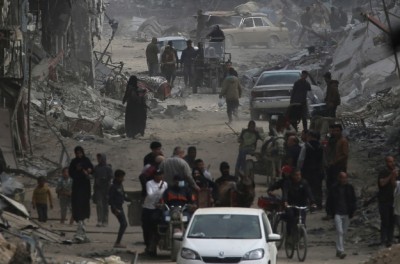The Food and Agriculture Organization of the United Nations (FAO) today welcomed approval from the Global Environment Facility (GEF) for four FAO-led projects in eight countries, totalling more than $13.6 million in funding. The decision was made during the 61st Meeting of the GEF Council, its main governing body, held virtually.
The latest projects will address urgent environmental challenges – such as land degradation and soil erosion, biodiversity loss, unsustainable fishing, and food production – that affect the food security and livelihoods of hundreds of thousands of people around the world.
“Preventing and reversing degradation is particularly important for transformation of global agrifood systems,” said FAO Director-General QU Dongyu. “These projects are an important new effort to protecting and enhancing our resources to achieve better production, better nutrition, a better environment, and a better life for all.”
The latest projects to be approved by the GEF will assist countries and communities to restore degraded land and seascapes, to adopt more sustainable and climate-resilient practices and foster greater regional co-operation.
To be implemented in partnership with and co-financed by the governments of Barbados, Cabo Verde Guyana, Malaysia, Marshall Islands, Suriname, Thailand, Trinidad and Tobago, the projects will directly benefit more than 135,000 people and restore over 4,150 hectares of degraded landscapes. Overall management of more than 5 million hectares of land and marine habitats will be improved and 37,000 tonnes of over-exploited fish stocks will be moved to more sustainable levels, in a key initiative that coincides with the International Year of Artisanal Fisheries and Aquaculture 2022.
Among the four projects are a regional project in the Golok/Kolok River Basin on the border of Thailand and Malaysia which aims to ensure water management, flood mitigation and erosion control. The project aims for a source-to-sea approach to better manage the impact of upstream activities on coastal and marine resources.
Initiatives in the Caribbean and Cabo Verde will focus on supporting countries to enhance the food security, environment, and livelihoods of Small Island Developing States (SIDS), which face unique environmental challenges and have also been hard hit economically by the COVID-19 pandemic.
In Cabo Verde, efforts will focus on landscape restoration and nature-based solutions for improved food security and nutrition, livelihoods and resilience, in support of Cabo Verde’s Land Degradation Neutrality commitments (LDN), particularly addressing needs on the islands of Santiago and Santo Antão where vulnerable farmers and their families have been severely affected by the pandemic.
Barbados, Guyana, Suriname, Trinidad and Tobago will work together on a project aimed at reducing overfishing and to promote more responsible fisheries and marine conservation, while a project in the Marshall Islands aims to restore degraded forests and improve marine management in an effort to transform agrifood systems.
FAO is a partner agency of the GEF, a partnership of 18 agencies and 183 countries which addresses the world’s most challenging environmental issues related to biodiversity, climate change, land degradation, chemicals, and international waters. GEF provides grants to countries to meet these challenges whilst contributing to key development goals, such as food security.
Since December 2018, FAO has mobilized more than $580 million in GEF grant funding for member countries, including the latest projects, benefitting over 4.6 million people and making FAO one of the top four GEF agencies globally.







